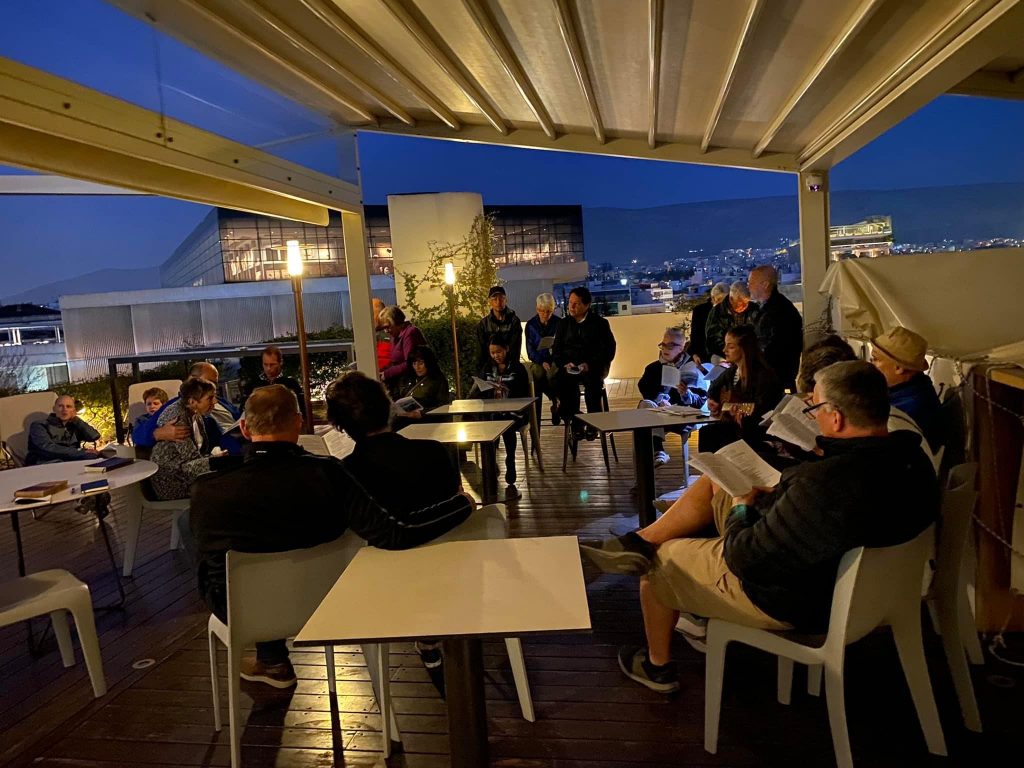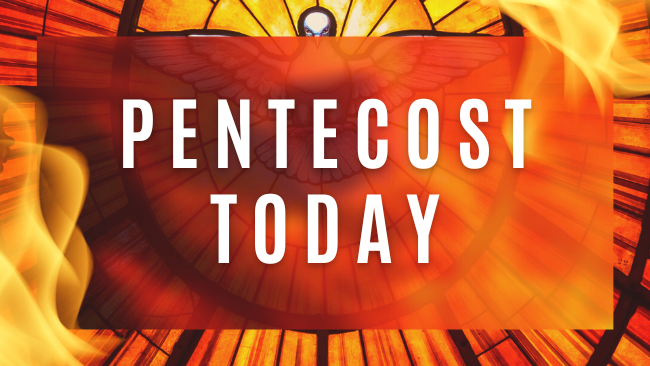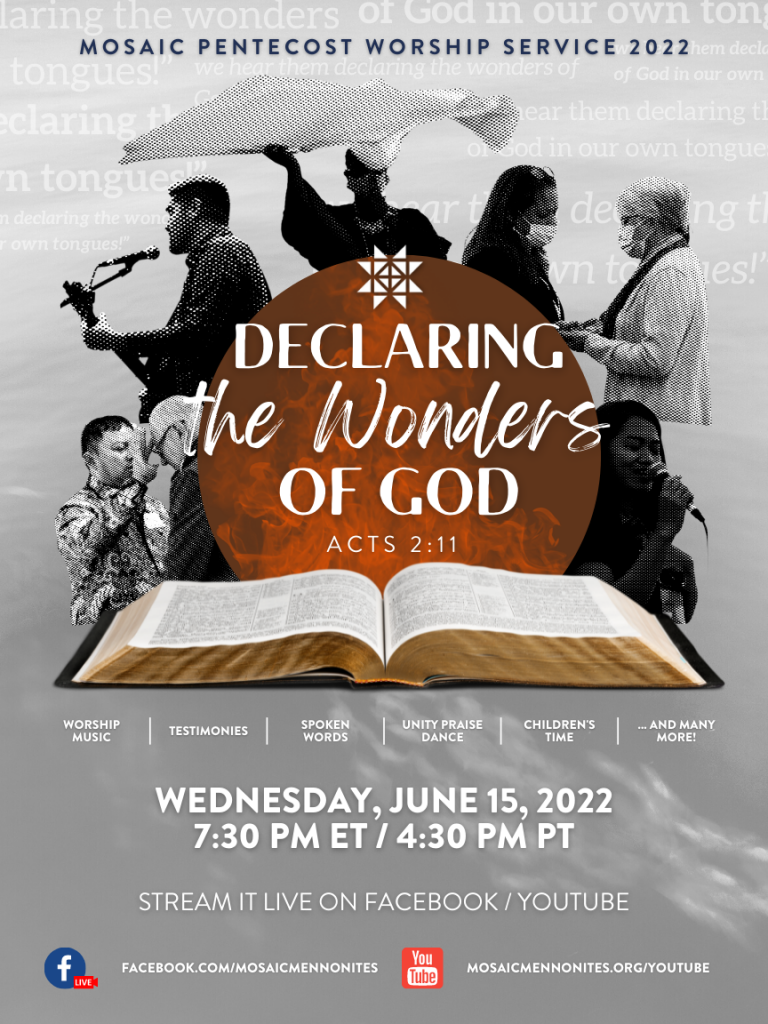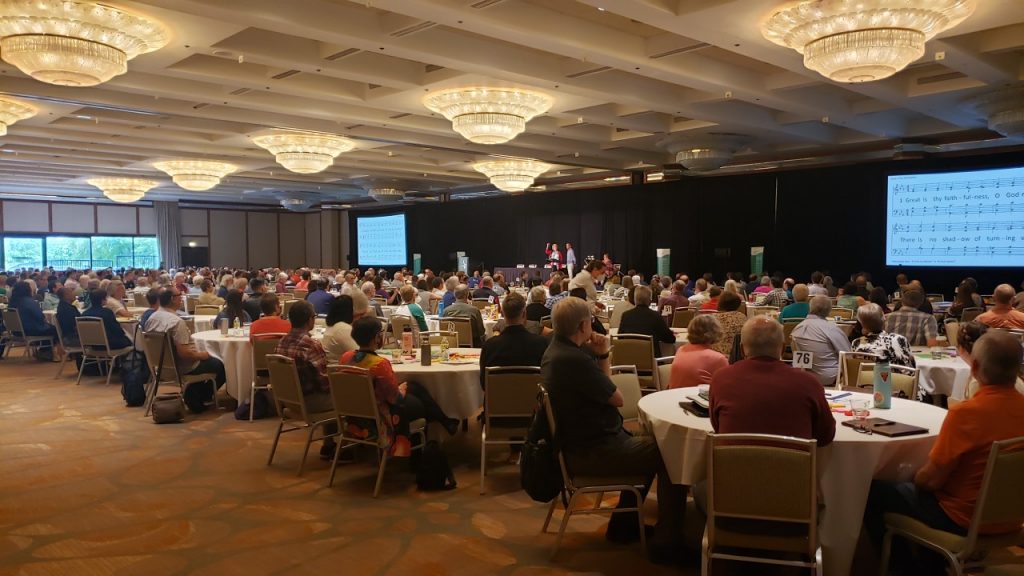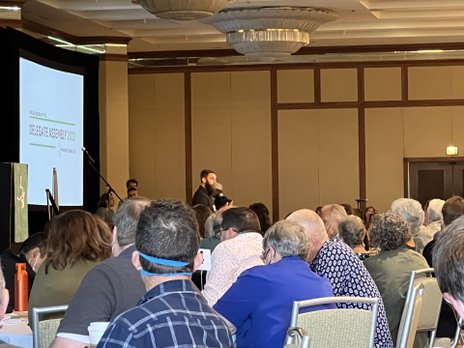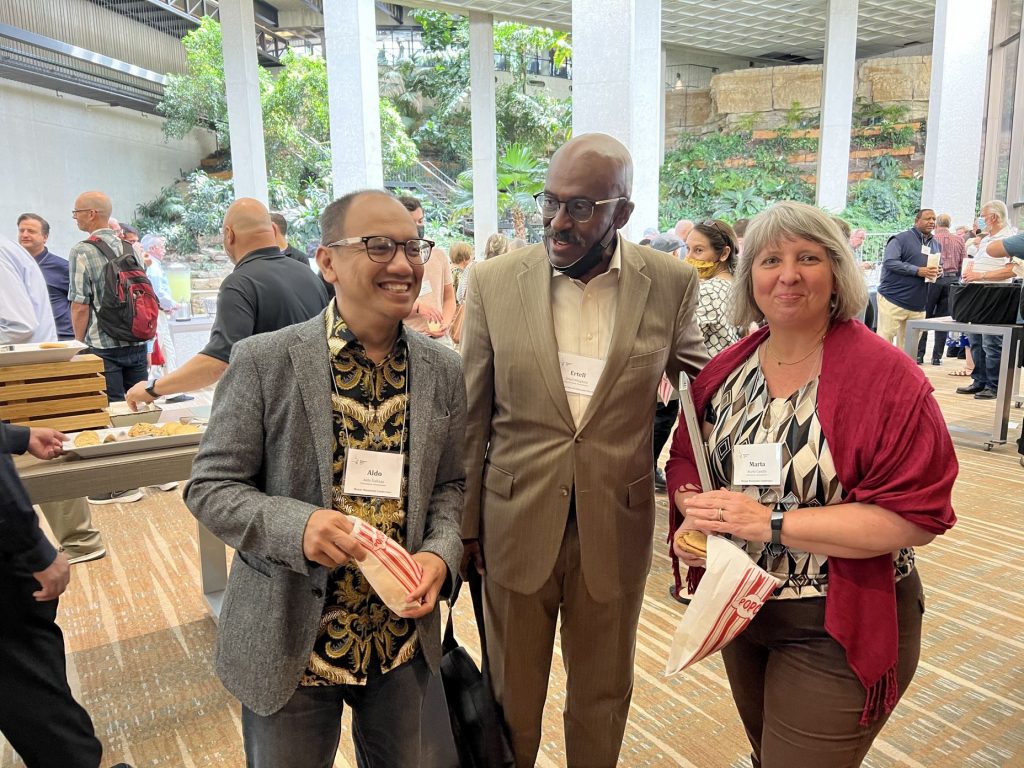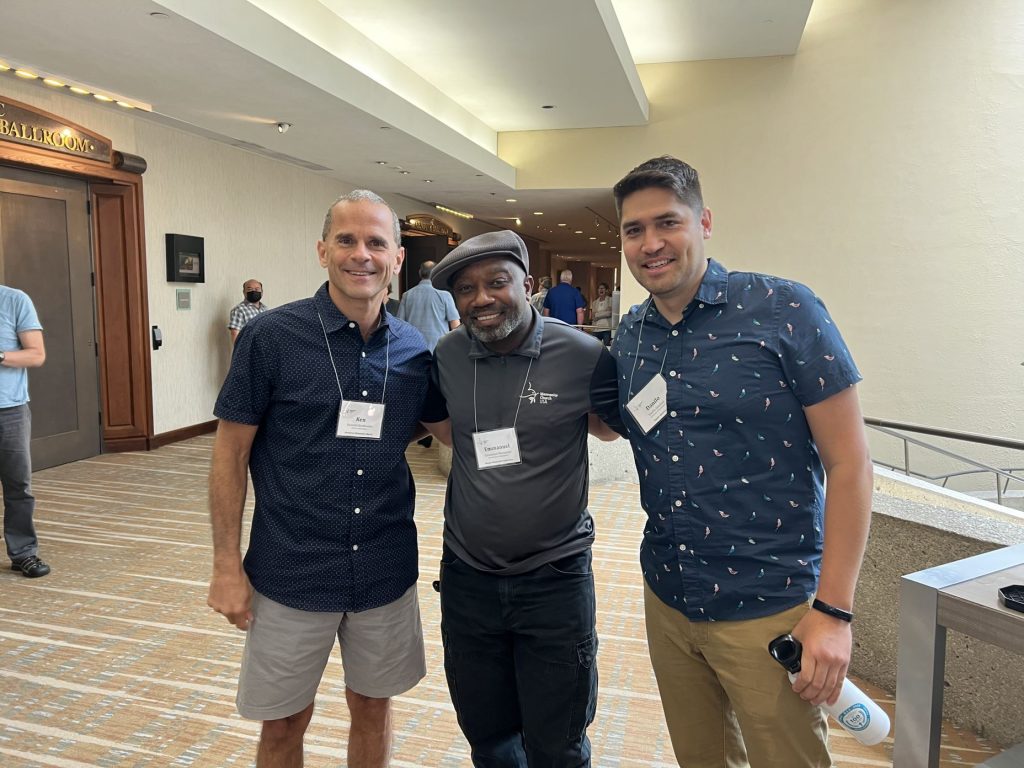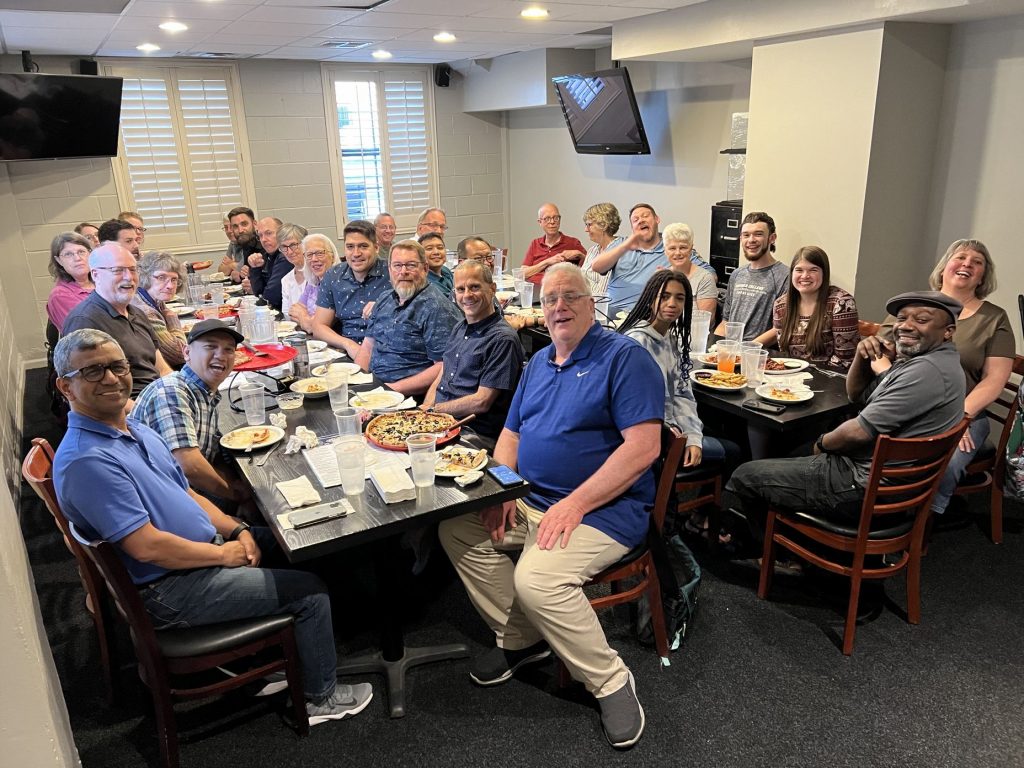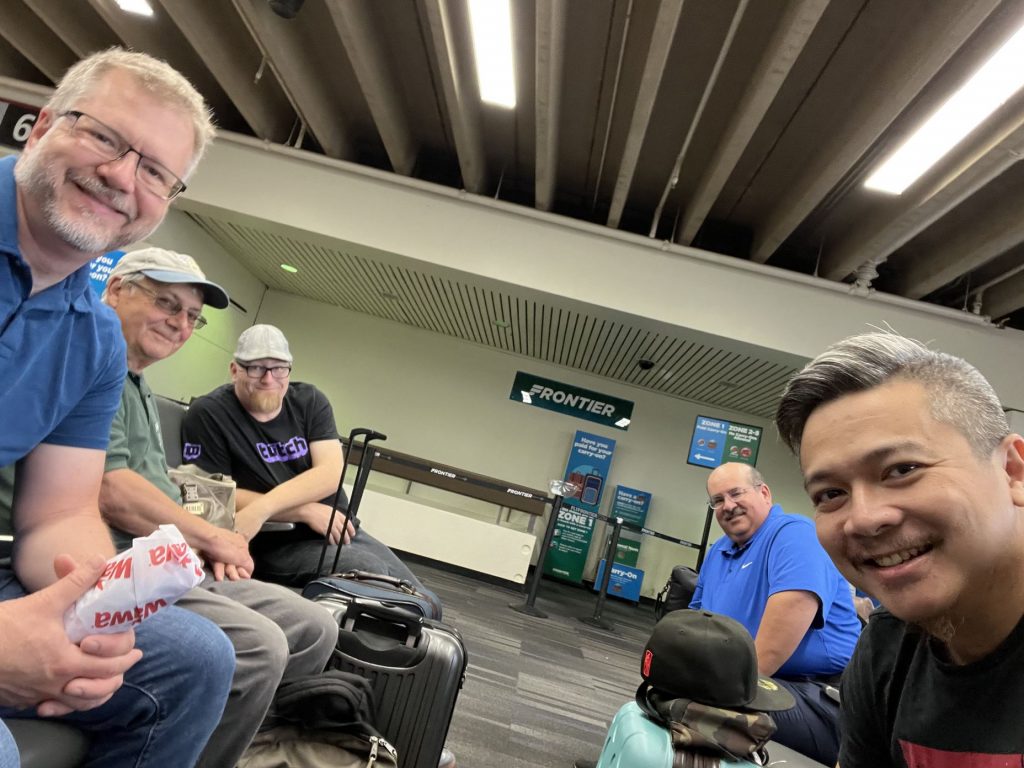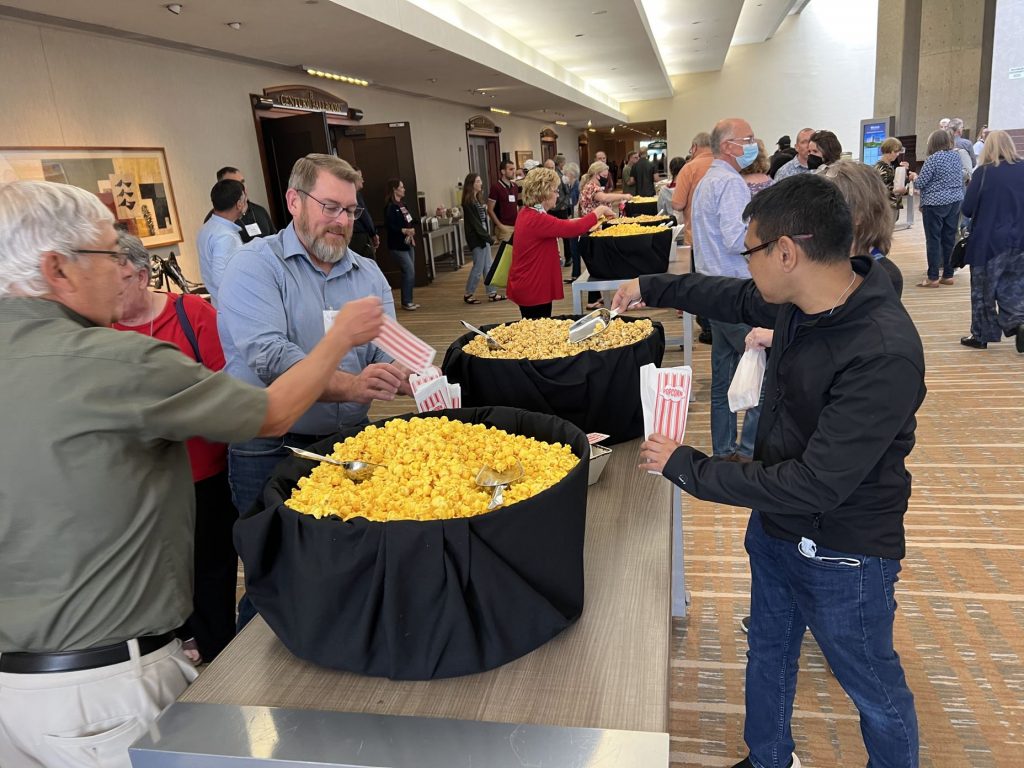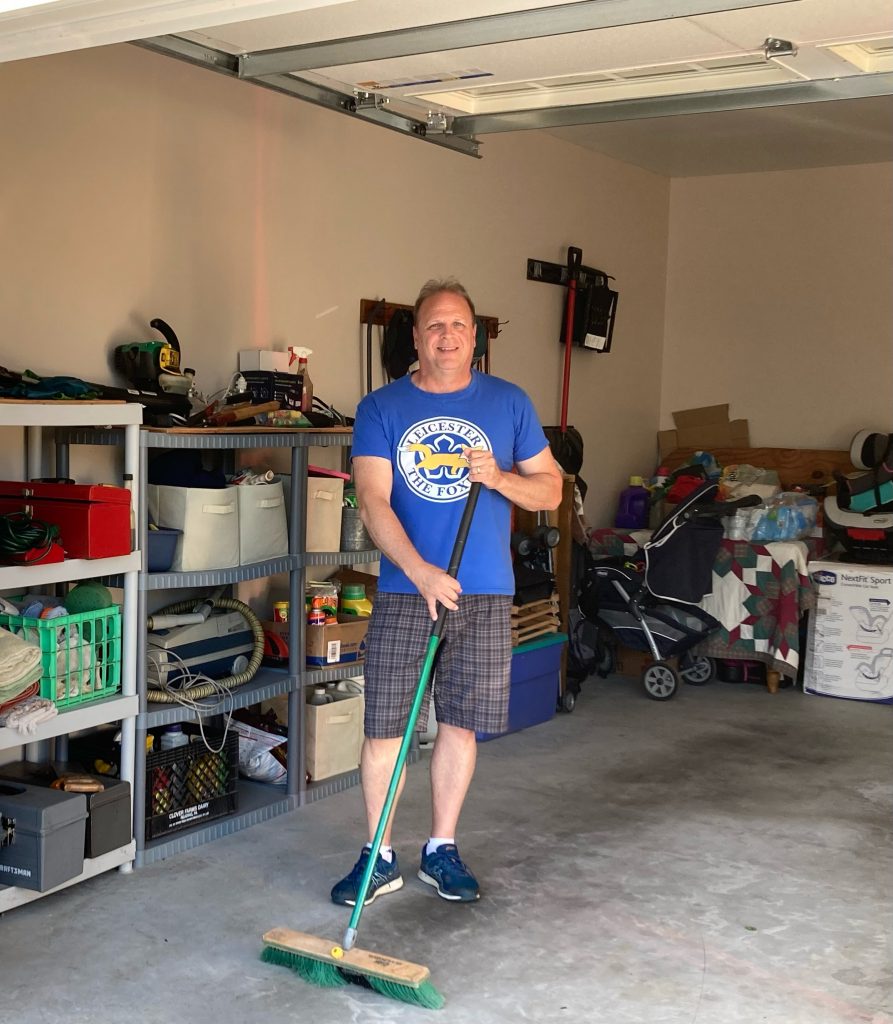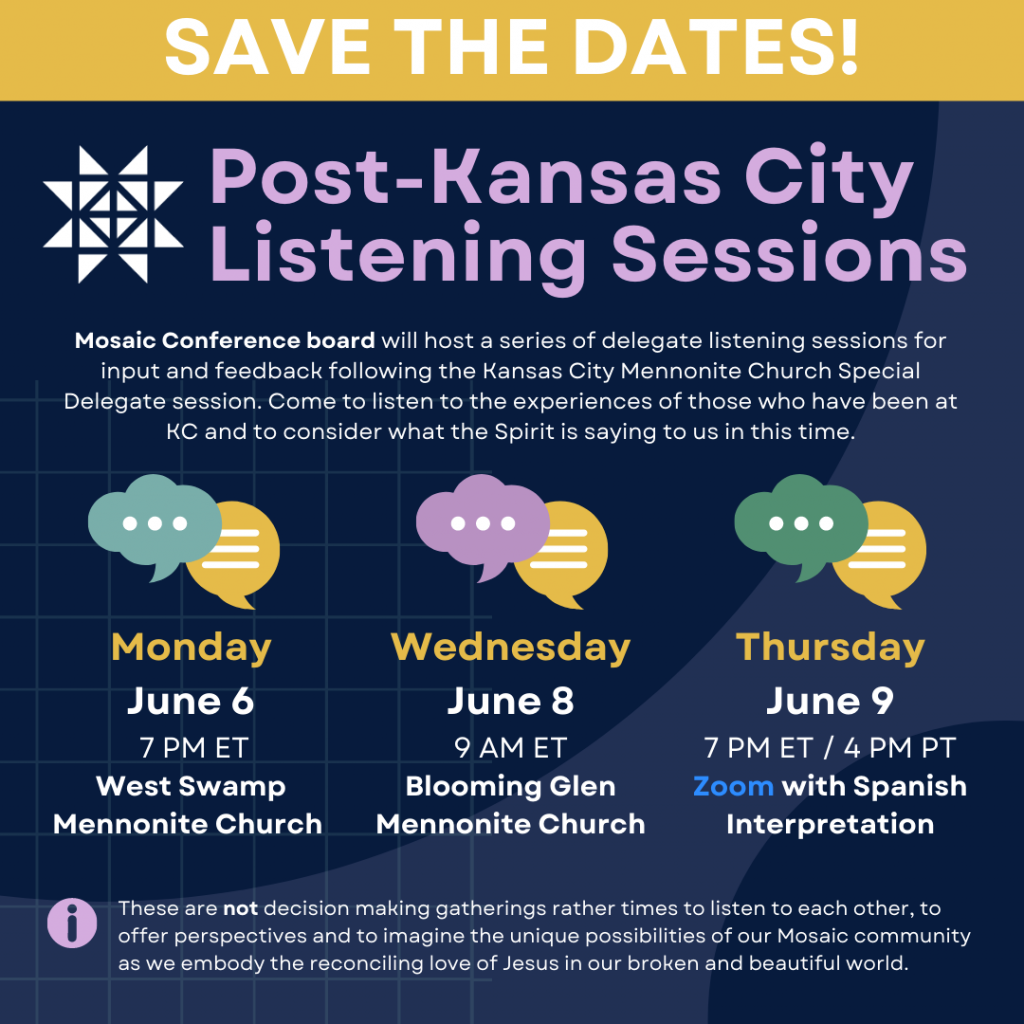In March, I co-led a group from my church, Franconia (PA) Mennonite Church, on a learning tour to Greece. It was an incredibly meaningful experience, traveling with sisters and brothers in Christ on a spiritual pilgrimage to one of the world’s richest regions of biblical history.
Why did we go?
From the outset, the goals for this trip were to (1) increase learning, (2) deepen discipleship, and (3) strengthen relationships. We were privileged to travel with Dr. Derek Cooper as our guide. Dr. Cooper is an expert in biblical history and the lands of the Bible. He provided remarkable insight and helped our group “put the text in context” in truly profound ways.
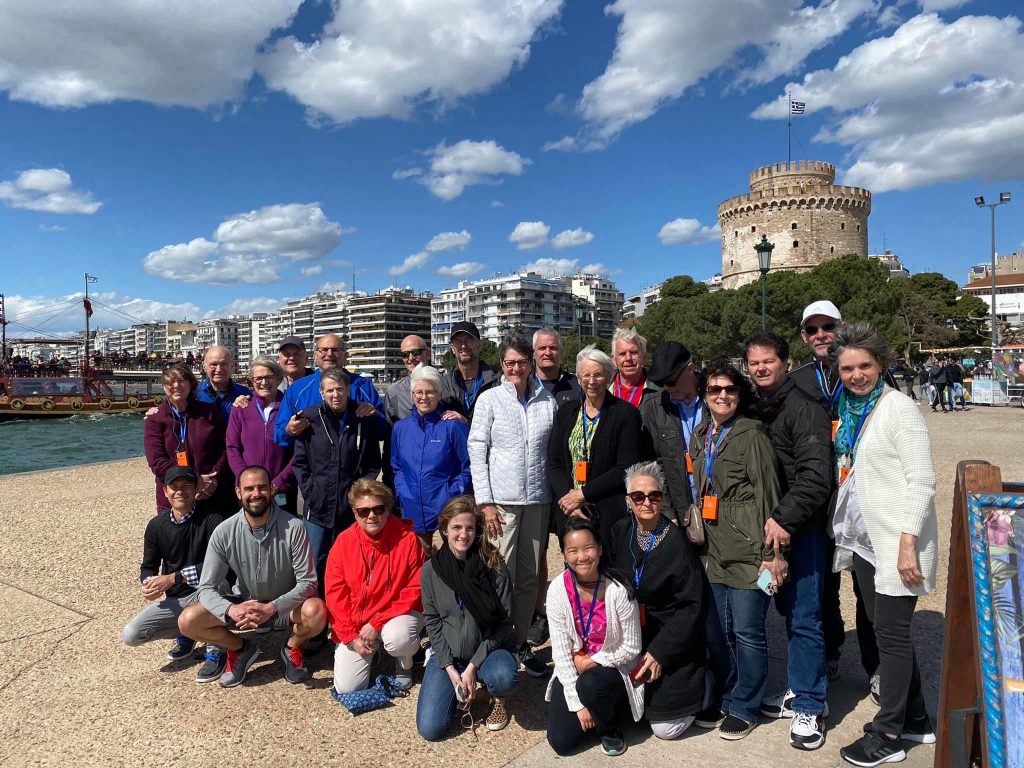
However, more than simply learning new and interesting information, we were also committed to this being a formational experience as well. It wasn’t just about information; it was about encounter – encountering God deeply. Through times of corporate worship, individual and group devotions, and regular opportunities for reflection, we were blessed with a deep spiritual experience.
The 25 group members bonded relationally in ways that were life-giving and just plain fun. There is a connection that’s established between those who travel together, particularly cross-culturally. I’m grateful for the strengthened relationships that this trip produced.
What did we do?
We spent the first part of our journey in and around Athens: visiting the Acropolis, the ancient Agora, the Parthenon, the Herodian Theater, Mars Hill, Aristotle’s Lyceum, and Corinth, among other sites. We then made our way north for the second half of the trip, visiting Delphi, the incredible cliff-side monasteries of Meteora, Berea, Thessaloniki, and Philippi.
In addition to this formal itinerary, we also created space for unplanned activities: rooftop worship sessions, taking a speedboat to Aegina Island, renting four-wheelers, swimming in the Aegean Sea, running in the Olympic stadium, hiking Mount Parnassus, eating amazing Greek food, and enjoying gelato most every night.
You can find a summary (with photos & brief commentary) of each day of the trip through the links at the bottom of this post.
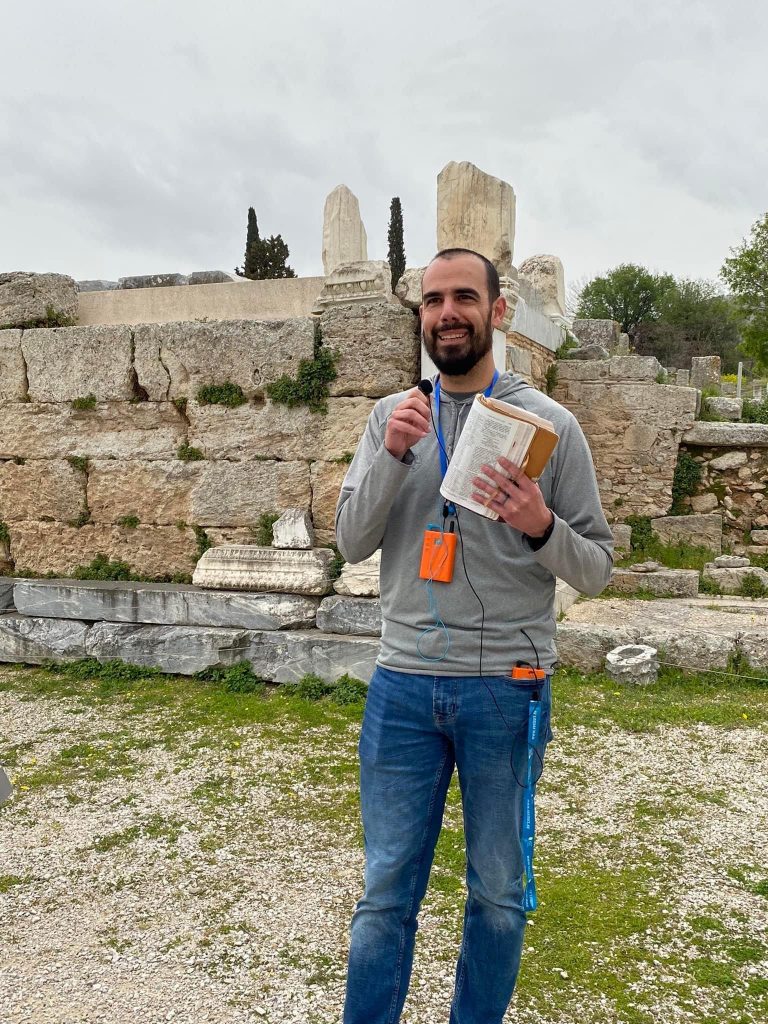
How did it impact me?
There’s an ancient story about a rabbi with a young son who loved spending time in nature. The boy spent hours upon hours playing in the woods and being in creation. Finally, the rabbi asked his son why he insisted on spending so much time outside. The boy said, “That’s where I connect with God. I connect with God most deeply when I’m out there.”
The rabbi replied, “Well son, you don’t need to go out there to connect with God. God is the same out there as God is at home and in school and in the synagogue. You don’t need to go somewhere else to experience God; you can experience God anywhere, everywhere. God’s not different out there.”
“Yes,” the boy replied, “…but I am. I’m different when I’m out there. Something changes within me that opens me up and allows me to experience God in different and deeper ways when I’m in that physical space.”
For me, that captures why an experience like traveling to Biblical Greece was so meaningful and led to such deep discipleship. Being “out there” – in the actual physical spaces where the Apostle Paul lived, worked, served, and proclaimed the Good News of Jesus – helped open me up to connecting with God in different and deeper ways. For that, I am humbled and grateful.
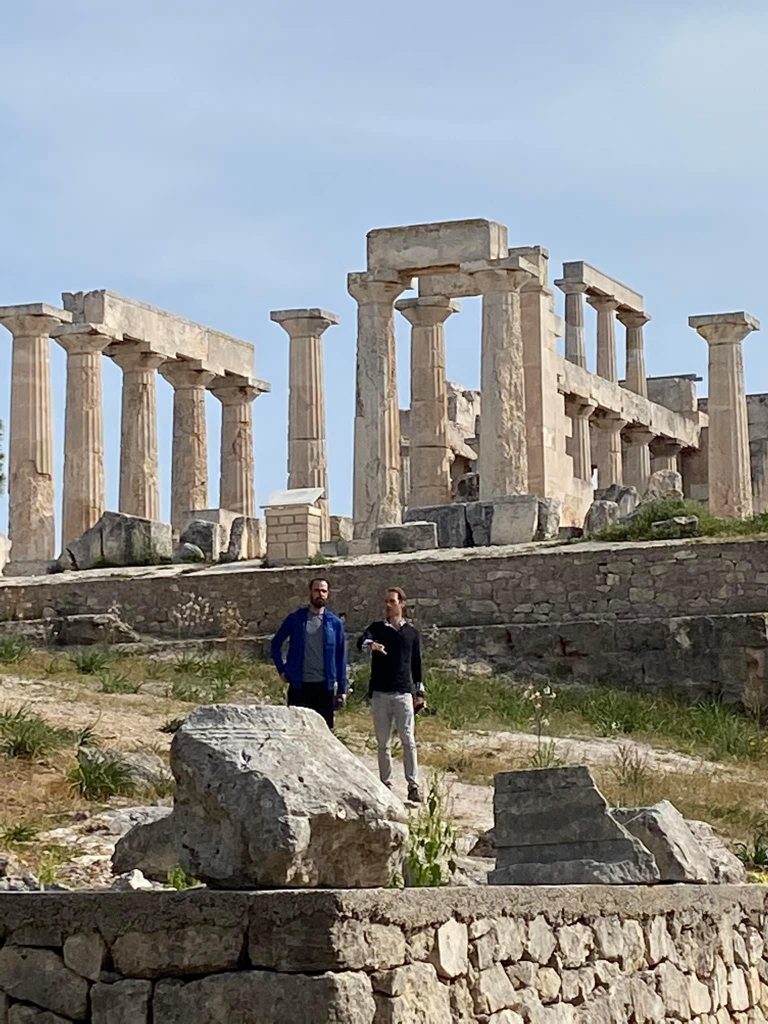
Κύριε Ιησού Χριστέ, Υιέ του Θεού, ελέησόν με τον αμαρτωλό.
A summary of each day of our trip with photos:
Day 1 | Day 2 | Day 3 | Day 4 | Day 5 | Day 6 | Day 7 | Day 8 | Day 9 | Day 10
